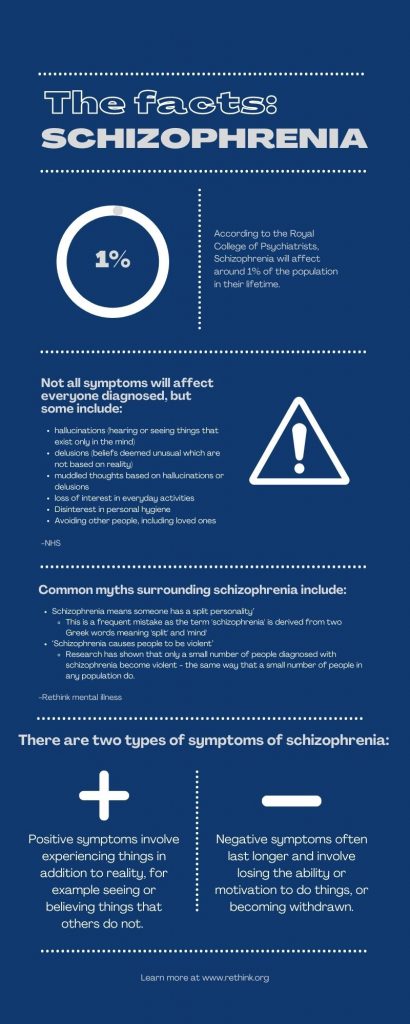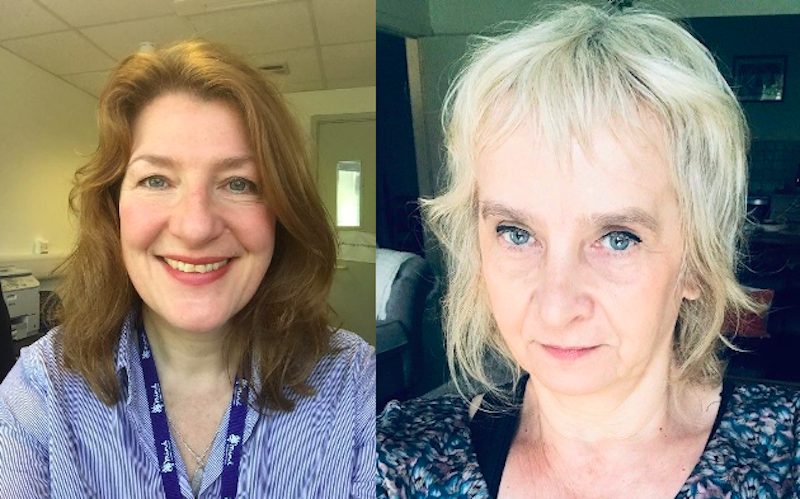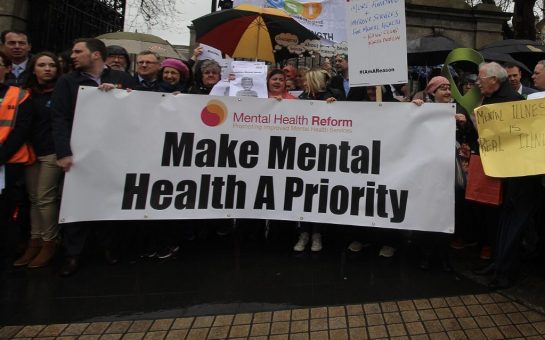Richmond Mind and its service users are calling for people to get to know the individuals behind their Schizophrenia diagnosis.
Although the 25th of July marked Schizophrenia national awareness day, sufferers still feel that there is a stigma surrounding the illness, which affects about 20 million people worldwide.
The condition, which has symptoms including hallucinations and delusions, often leads people to feel unable to distinguish their own thoughts and ideas from reality.

“It’s experiencing life in a way that others don’t experience, believing things that others don’t believe, feeling things, seeing things, hearing things,” said Gordon, who has lived with Schizophrenia for many years.
“The whole interaction with life and other people is affected.”
Despite the improvements in medical understanding of his illness, he is still met with a lack of compassion from medical professionals, as well as people in everyday life.
He has even heard of people advising against marrying into families with members who suffer from Schizophrenia.
When asked what change would make the biggest impact on his life, Gordon simply said: “Acceptance.
“There are still a lot of judgemental attitudes towards people with Schizophrenia.”
Currently, he does not feel able to be open about his condition, due to fears of people changing their attitude towards him.
Gordon added: “I’d like people to know that I’m not a danger to them, they’ve got nothing to worry about. I’m not going to harm them in any way.
“I don’t run around the streets screaming and acting in an antisocial way, so there’s no need for them to be apprehensive, or anxious, or concerned.”

Val Farmer, chief executive of Richmond Mind, highlighted the difficulties that come with labelling mental health conditions such as Schizophrenia.
Using a label may be unhelpful as it can lead people to self-stigmatise, meaning that they internalise the stereotypes associated with a condition and apply them to themselves.
It can also lead people to make assumptions about what someone with a particular diagnosis is going through.
On Schizophrenia in particular, she said: “The experience for each individual is quite unique and there’s a range of symptoms, so it’s often misunderstood.
“People think that hallucinations and hearing voices are the most common aspects, but there’s lots of others as well.”
She highlighted Mind’s person-centred approach, which focuses on the symptoms that someone is experiencing rather than those linked to a particular diagnosis.
This enables a greater understanding of what they are actually going through, making it easier to help them.
One in 100 people have a diagnosis of serious mental health, constituting a significant part of the population, so awareness and empathy is crucial.
Farmer added: “Mental illness can happen to anyone, so the more that we take the fear out of it and create a greater understanding, the more that we’re all able to support each other.
“We are all people, we’re all human, and we all get ill in a variety of ways… mental illness is just one of those ways.”
Groups such as Mind’s Hearing Voices group allow sufferers to feel more understood through talking with others with shared experiences.
“There is so much love, so much empathy in this group,” said Ewa Rudz, Wellbeing Centre manager, who runs the group.
“This is the place that people come because they feel safe… because in any other settings they are not asked, or they shut down when sharing about their condition.”
She highlighted how the group has been vital in tackling the loneliness that comes with living with mental health difficulties.
Rudz added: “There is no one to listen, and people often experience a lack of respect from others.
“They may have lost their self-esteem, their achievements, their family, their friends, and their experiences are overwhelming.
“Everyone should have a place in the world, it doesn’t matter who they are.”
The mutual understanding provided by the group enables its attendees to feel more courageous when talking about their experiences.
“If you perceive the world in a strange way then you can’t share that with people, because they’d just regard you as being strange, or scary even,” said Gordon, who attends the group.
“Having a group where you can open up more and feel a connection to others, an empathy, having somewhere where you’re more included, is a very important thing.
“It may give you the courage to be able to share more with people on a day-to-day basis.”
He also stressed how crucial it is to focus on the individual and not the label.
“Get to know someone who has Schizophrenia, rather than just recoil at the label, before you judge,” he said.
“You might be surprised by how much you would even like the person.”
Featured image credit: Richmond Mind




